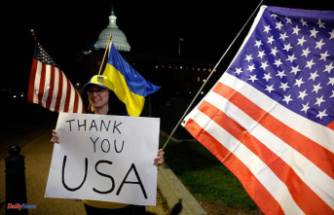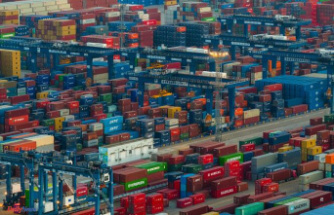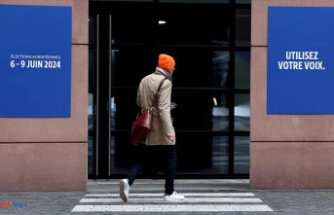The European Parliament recommends not to move to phase two of the Brexit
The Brexit calendar is beginning to become obsolete. In the absence of a miracle — in the words of the President of the European Commission, Jean-Claude Juncker — to accelerate the negotiation, Brussels and London will not be able to move to the second phase of the process ...

The Brexit calendar is beginning to become obsolete. In the absence of a miracle — in the words of the President of the European Commission, Jean-Claude Juncker — to accelerate the negotiation, Brussels and London will not be able to move to the second phase of the process in October, as they intended. The European Parliament wants to move ahead of the next British Prime Minister's message, Theresa May, to ask that the second chapter of this story not be opened: the discussion on how the UK will relate to the European Union once it leaves the club.
The Parliament plans to approve next Tuesday a resolution calling on the EU Heads of State and Government to postpone the discussion on the future dealings with London. The text, which the country has had access to, alludes to the difficulties in advancing the so-called Brexit invoice and concludes: "The absence of clear proposals has hampered the negotiations". Despite the optimistic gleam that left the last round of negotiations, MEPs see almost impossible to clear the unknowns pending before the October Summit and ask the European leaders "to postpone their assessment of whether progress has been made sufficiently. "
The Parliament has measured the parliamentary times so that its message is issued on October 3, just one day before the intervention of May at the annual conference of its Party. It is very likely that the British leader would like to brag about progress with his still community partners in trying to legitimize himself with his fellow. Parliament's resolution will try to crack that assessment.
Except surprises, the text is guaranteed the majority because it has the support of the European People's Party, of socialists, liberals, minority left and greens. It will not be supported by the conservative group that includes the Tories, the Polish MEPs of Kaczynski and the Flemish nationalists, nor the captained group by the British populist Nigel Farage. These formations work in an alternative resolution, without the signs of flourishing.
The Parliament, whose vote is binding on the final agreement of the Brexit, although not directly involved in the negotiation, has taken the most intransigent stance in this process. MEPs load the inks on the rights of citizens affected by the rupture. The resolution considers "vital" to realize the commitment, acquired by May, to incorporate into the British law the agreement reached with Brussels. And he is adamant about the red line of the EU Court of Justice. Only this instance, according to Parliament, can guarantee the rights of Europeans who remain on British soil and the British who continue to reside in the EU.
NEWS HEADLINES
1
Provocateurs, conservatives and neo-nazis
2
Five injured in Canada in suspected terrorist attacks
3
Two women killed in a knife attack at Marseille station
4
Shooting in Las Vegas, latest live news
5
Stephen Paddock: The "lone Wolf" who committed suicide
6
Social democracy loses ground throughout Europe
7
USA expels 15 Cuban diplomats after mysterious sonic...
8
A new theatre in the city
9
What if Aira won the Nobel Prize?
10
The Portuguese PC after its municipal defeat: "The...
BREAKING NEWS
SURVEYAll Surveys











